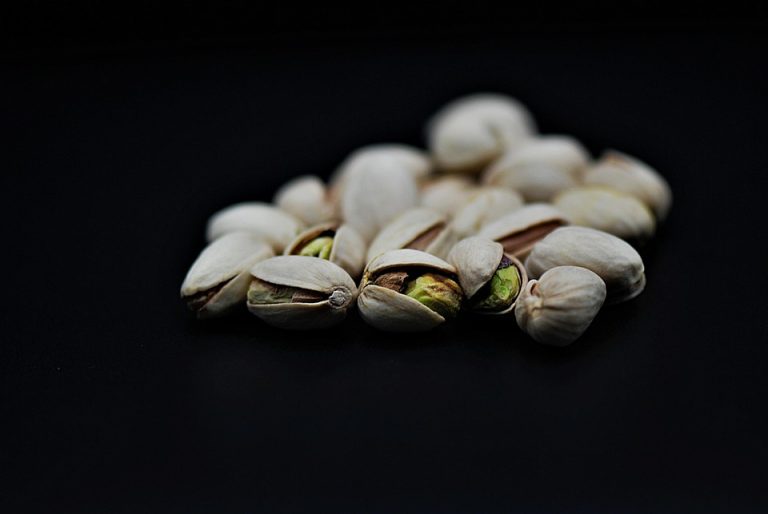You might think of kale as just another trendy green, but it’s time to give this leafy powerhouse some serious credit. Did you know that kale can actually play a significant role in supporting bone health? That’s right! While many of us are aware that calcium is essential for strong bones, the nutrients found in kale can also help to fortify your skeletal system. Let’s dive into the top five reasons why you should consider adding kale to your diet for stronger bones.
Contents
1. Rich in Calcium
When it comes to bone health, calcium is king. This mineral is crucial for developing and maintaining strong bones. Kale is an excellent source of calcium, providing about 150 mg per cooked cup. This is particularly important for those who may not consume dairy products or are looking for plant-based sources of calcium.
But here’s the catch: while kale is rich in calcium, it also contains oxalates, which can inhibit calcium absorption. So, while you’re getting a good dose of calcium, it’s a good idea to pair kale with other calcium-rich foods that aren’t high in oxalates, like broccoli or almonds.
Pros:
- Great source of calcium for vegans and those avoiding dairy.
- Can help meet daily calcium requirements.
Cons:
- Contains oxalates that may hinder calcium absorption.
2. Packed with Vitamin K
Vitamin K is another key player in bone health. It helps in the formation of osteocalcin, a protein that’s crucial for bone mineralization. Kale is one of the richest sources of vitamin K, providing more than 1,000% of the recommended daily intake in just one cup of cooked kale.
Research suggests that adequate vitamin K intake can reduce the risk of fractures and support overall bone density. A study published in the American Journal of Clinical Nutrition found that higher vitamin K intake was associated with greater bone mineral density in women.
Pros:
- Supports bone mineralization.
- May decrease fracture risk.
Cons:
- Excessive vitamin K can interfere with blood-thinning medications, so consult your doctor if you’re on such medications.
3. Contains Magnesium
Magnesium is another mineral that plays a vital role in bone health. It helps convert vitamin D into its active form, which is essential for calcium absorption. Kale provides a decent amount of magnesium, with about 30 mg per cooked cup.
Research indicates that magnesium deficiency can lead to decreased bone density and increased fracture risk. A well-balanced diet that includes kale can help ensure you’re getting enough magnesium to support your bones.
Pros:
- Aids in calcium absorption.
- Contributes to overall bone density.
Cons:
- While kale is a good source, it may not provide enough magnesium on its own, so consider other sources like nuts and seeds.
4. Anti-Inflammatory Properties
Chronic inflammation can negatively impact bone health, leading to conditions like osteoporosis. Fortunately, kale is loaded with antioxidants and anti-inflammatory compounds, such as flavonoids and carotenoids. These compounds can help reduce inflammation in the body, which is beneficial for maintaining healthy bones.
A study published in the Journal of Bone and Mineral Research found that diets rich in antioxidants can help lower the risk of osteoporosis. Adding kale to your meals can be a tasty way to incorporate these anti-inflammatory benefits.
Pros:
- May help reduce chronic inflammation.
- Supports overall health, not just bone health.
Cons:
- While kale is beneficial, it should be part of a broader anti-inflammatory diet that includes a variety of fruits, vegetables, and whole grains.
5. Boosts Vitamin C Intake
Vitamin C is often recognized for its immune-boosting properties, but did you know it’s also important for bone health? This vitamin plays a crucial role in collagen synthesis, which is essential for bone structure. Kale is a fantastic source of vitamin C, providing about 80 mg per cooked cup.
Research has shown that higher vitamin C intake is associated with better bone density and a lower risk of fractures. So, not only does kale support your bones, but it also helps keep your immune system in check!
Pros:
- Supports collagen production for bone structure.
- May lower fracture risk.
Cons:
- While kale is a great source, it’s essential to include other vitamin C-rich foods like citrus fruits and berries for a well-rounded diet.
FAQs
1. Can I eat kale every day for bone health?
Absolutely! Including kale in your daily diet can be beneficial for bone health due to its rich nutrient profile. Just make sure to balance it with other foods to ensure a well-rounded intake of nutrients.
2. Is cooked kale better for bone health than raw kale?
Cooking kale can help reduce its oxalate content, making the calcium more bioavailable. However, both raw and cooked kale have their benefits, so it’s a good idea to eat it in various forms.
3. What are some easy ways to add kale to my diet?
You can add kale to smoothies, salads, soups, or even sauté it as a side dish. It’s versatile and can easily fit into many recipes.
4. Are there any side effects of eating too much kale?
While kale is nutritious, excessive consumption can lead to an overconsumption of oxalates, which can contribute to kidney stones in susceptible individuals. Moderation is key!
Conclusion
Kale is more than just a trendy vegetable; it’s a nutritional powerhouse that can greatly benefit your bone health. With its rich content of calcium, vitamin K, magnesium, anti-inflammatory properties, and vitamin C, incorporating kale into your diet can help strengthen your bones and support overall health.
As we continue to learn more about the connection between diet and bone health, it’s clear that leafy greens like kale are worth the hype. So why not toss some into your next salad or smoothie? Your bones will thank you!
This article is for educational purposes only and is not a substitute for professional medical advice. Always consult a qualified healthcare provider before making changes to your health routine.
References
-
Weaver, C. M., & Heaney, R. P. (2006). Calcium. American Journal of Clinical Nutrition, 83(6), 1241S-1245S. https://doi.org/10.1093/ajcn/83.6.1241S
-
Knapen, M. H. J., et al. (2013). The role of vitamin K in the prevention of osteoporosis and fracture. Journal of Bone and Mineral Research, 28(7), 1381-1390. https://doi.org/10.1002/jbmr.1841
-
NIH. (2021). Magnesium. National Institutes of Health. https://ods.od.nih.gov/factsheets/Magnesium-HealthProfessional/
-
Harvard Health Publishing. (2019). The role of vitamin C in bone health. https://www.health.harvard.edu/staying-healthy/the-role-of-vitamin-c-in-bone-health
Get Your FREE Natural Health Guide!
Subscribe now and receive our exclusive ebook packed with natural health tips, practical wellness advice, and easy lifestyle changes, delivered straight to your inbox.




